
Range Masking In Lightroom Classic The Creative Photographer
Graduated Filters will create a mask that affects an area of the image in a linear direction, while the Radial Filter will affect them in a circular area. This shape can be adjusted and rotated to any kind of circle/ellipse, so the possibilities are endless when creating your masks. Most of the time, the main reason to use either of these tools.
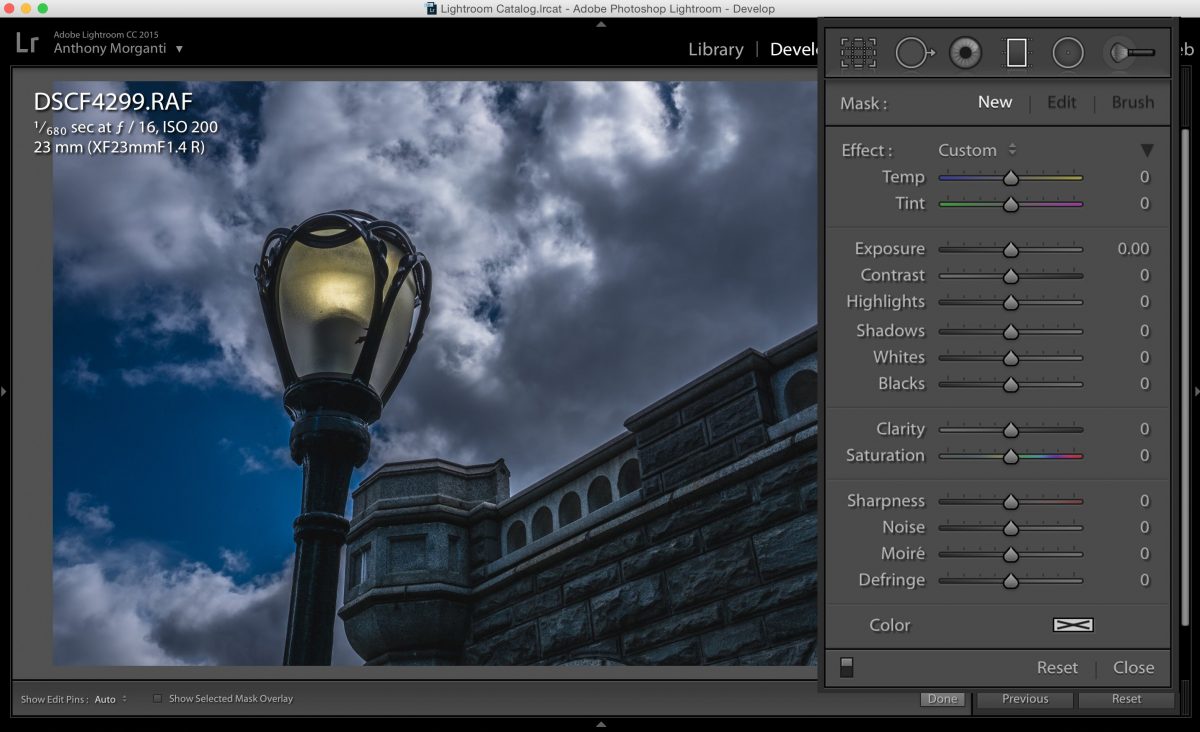
How to Blur Background Using Lightroom Your Ultimate Guide
1. Go to the Masks panel, then Create New Mask and Select Background. In the Masks panel it looks something like this. 2. Click the Subtract button and select Linear Gradient from the options. Hold the left mouse button down and drag the cursor across the image to place the Linear Gradient.
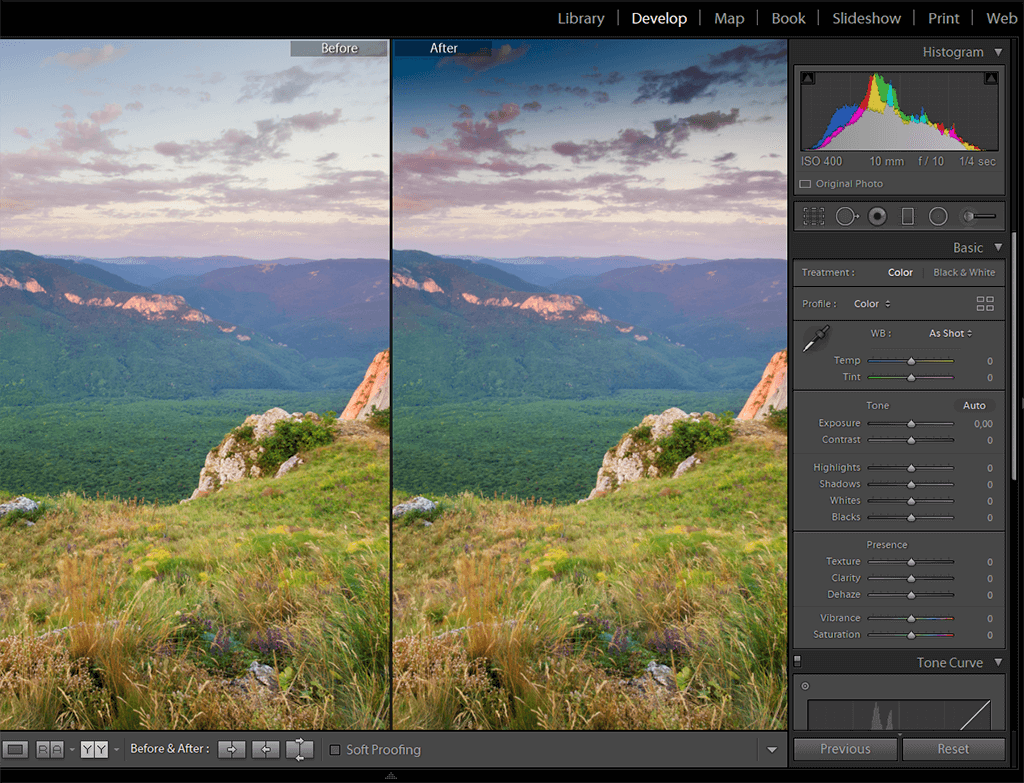
How to Use Graduated Filter in Lightroom Tutorial for Beginners
Next, click the Masking icon on the right-hand panel of your screen. Graduated filters are considered masks in the program. From here, select Linear Gradient. You can also press M to access the graduated filter. When selected, click anywhere on your photo, and you should see the graduated filter as crosshairs. If Show Overlay is selected in the.
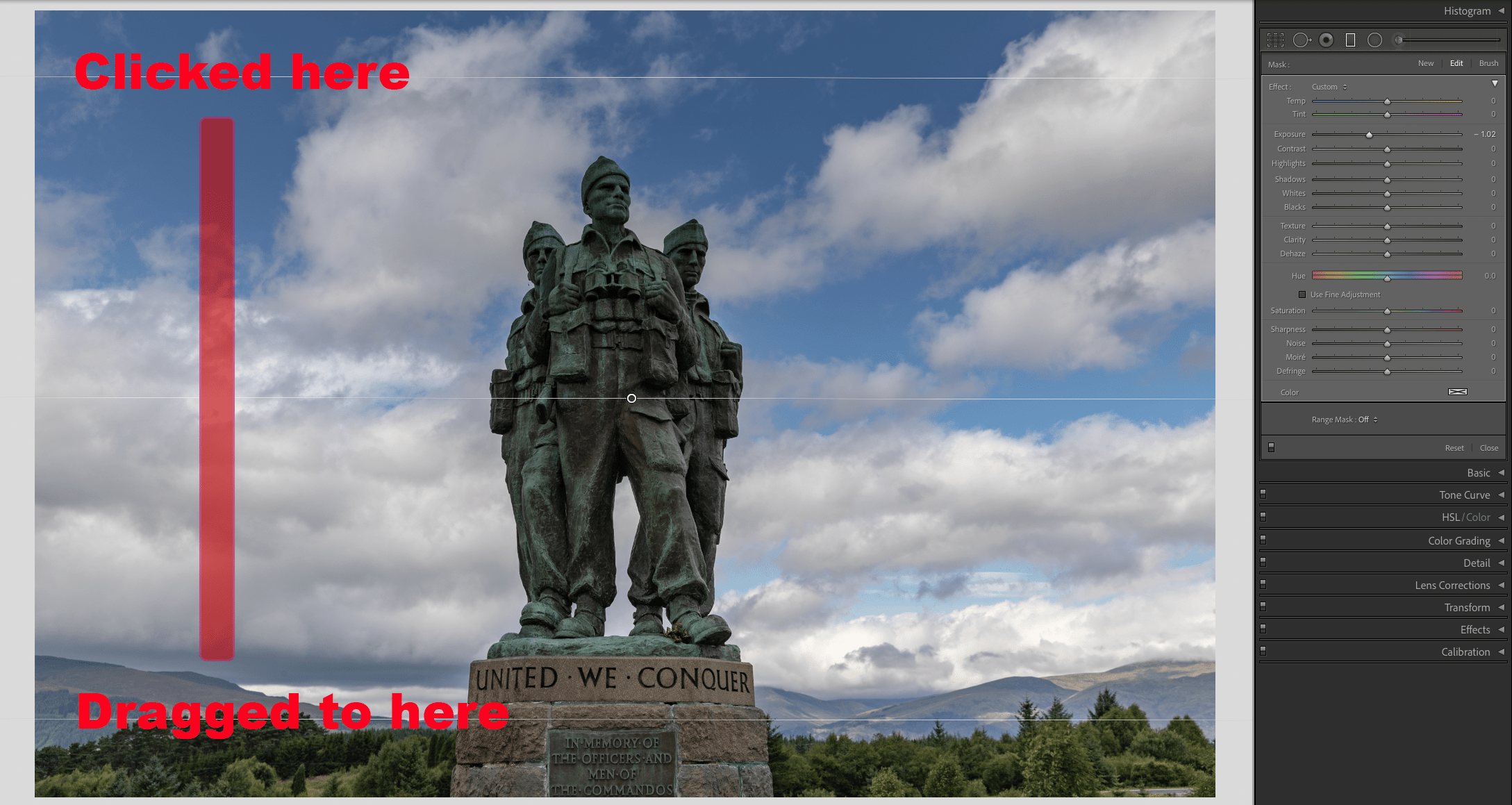
Lightroom Filters, Brushes and Masks Edinburgh Photography
How to use a Lightroom Graduated Filter and Range Mask in Lightroom Classic. This is a powerful tool to adjust selected tones or colours in your creative edi.
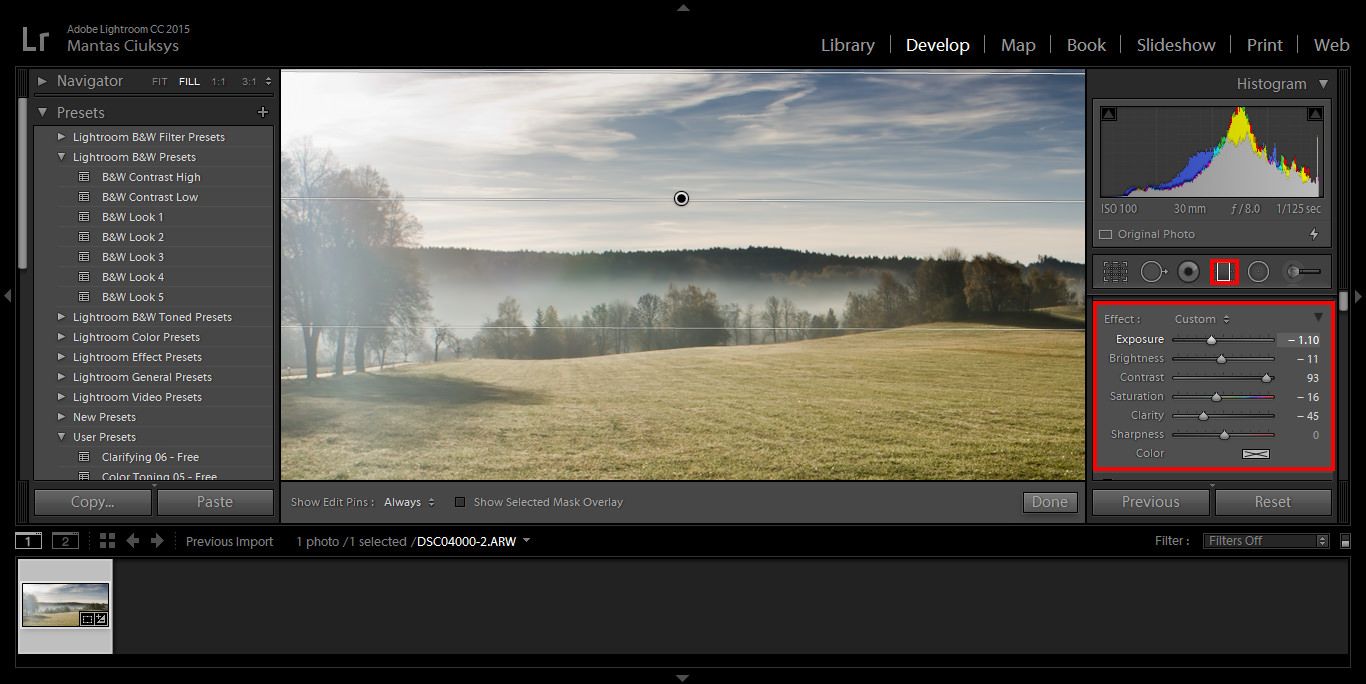
How to Properly Use the Graduated Filter Tool in Adobe Lightroom
Although kicking around Lightroom since 2018, not many people have heard of the Range Mask. In the graduated filter scroll down the right-hand panel to reveal the Range Mask option. With a.
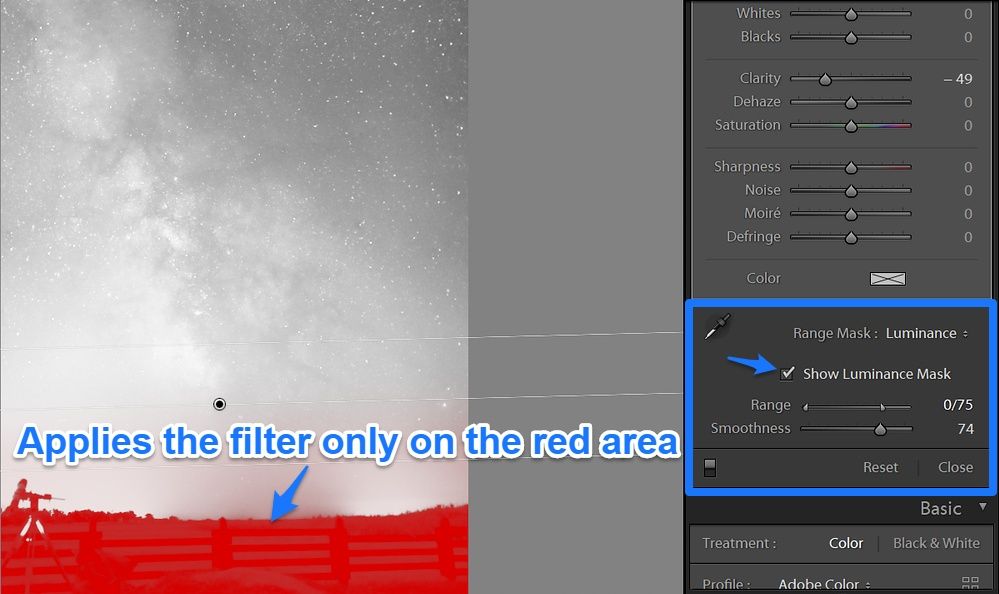
lightroom graduated filter range masks luminance_2 I will be your photo guide!
Lightroom didn't even use the term "mask" for most operations, instead opting for the word "filter" - which wasn't really an accurate description of the work being done. The sheer power and flexibility of the Radial, Graduated, and Brush filters was amazing, but the workflow was often slow, especially when editing dozens or.

How to use graduated filter lightroom Photo Editing Lightroom, Adobe Lightroom, Lightroom
The Lightroom Graduated filter, also referred to as the Lightroom Linear Gradient, is an editing tool designed for targeted adjustments: Apply a Graduated filter, and Lightroom creates a gradated edit across your image. The effect starts out at 0, then slowly works its way toward 100 as it moves across the image.
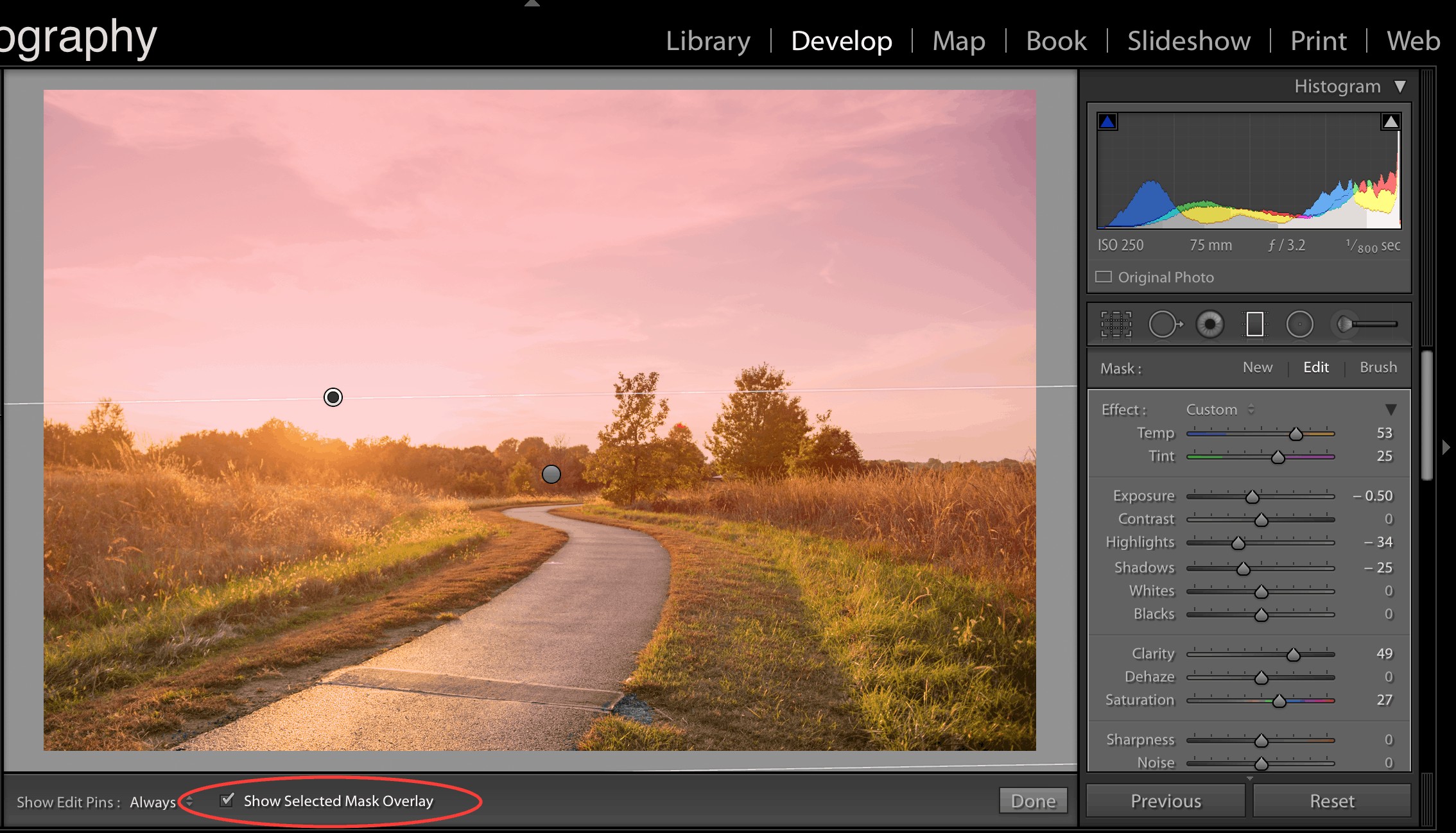
Quick Tips for Using the Graduated Filter in Lightroom
Once you have your photo inside of Lightroom, head into the develop module. The graduated filter tool is inside the toolbox at the top of the right-hand sidebar. Once you click on the tool, you.
Mastering the Graduated Filter in Adobe Lightroom Infrared Conversions, IR Modifications
Here are our best tips and techniques for getting the most out of the Graduated Filter tool in Lightroom. 1. Keep It Straight with Graduated Filters. In the Develop module, select the Graduated Filter tool. Place the cursor at the point of the image that you want the effect of the filter to begin. Then drag it in any direction.
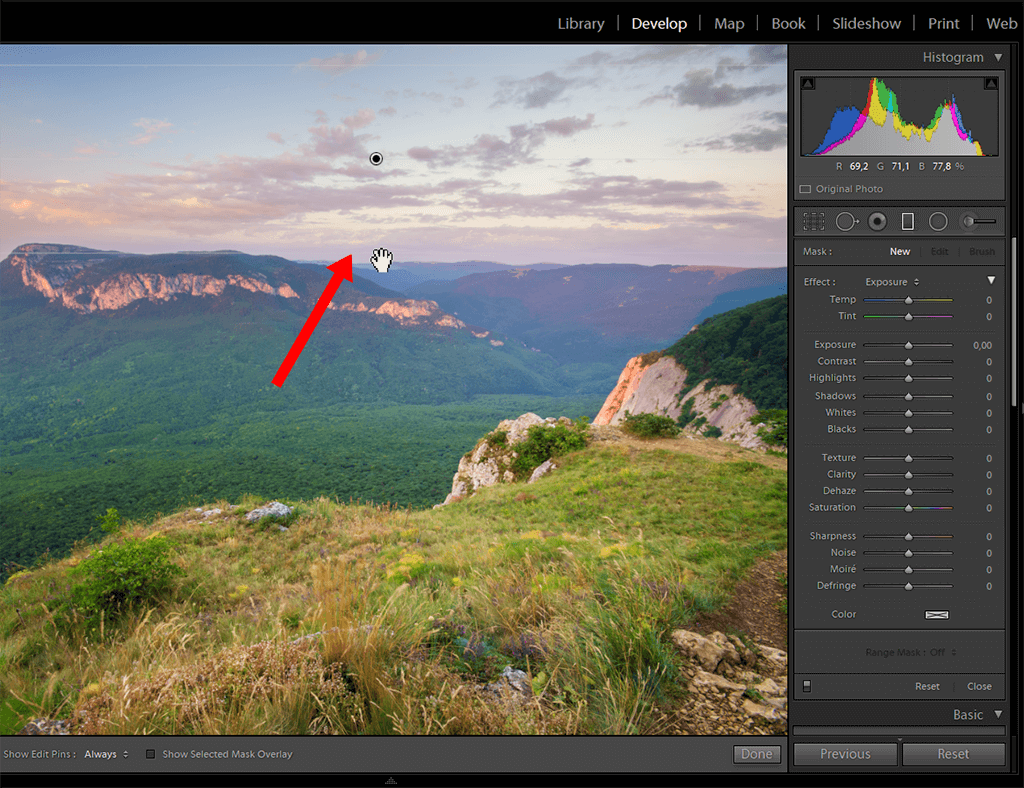
How to Use Graduated Filter in Lightroom Tutorial for Beginners
Using the Graduated Filter. You can drag your filter from either side of your image toward the middle. Or from the top, bottom or from a diagonal direction. You can turn the Mask feature on (keyboard shortcut is O), which helps you see where the graduated filter thins out. You can even change the color of the mask (Shift + O and cycle through.

LittleKnown Way to Create Luminosity Masks in Lightroom CaptureLandscapes
The Graduated Filter is a linear tool, so anything that's above the horizon will take on the effects you apply to the sky. Lightroom has a fix for this: in the Mask section, select Brush . From the Brush section that appears, select the Erase brush.

A helpful Guide on how to use the Graduated Filter in Lightroom and Camera Raw — Daniel Gastager
As mentioned above, a Graduated Filter allows you to adjust or edit parts of your image (from the edge of the image, in toward the center). So it's perfect for darkening the sky, lightening the foreground, or even darkening a corner that's just too bright (see example below). This is called a local adjustment because it only applies to or.

Range Mask is an addition to the local adjustment tools (Adjustment Brush, Graduated Filter, and
1. Activate the Graduated Filter. After importing the image, go to the Develop menu. Press the Graduated filter icon that is located under the Histogram. After clicking the icon, you'll be greeted by a menu that looks like the "Basic" panel, as it also has sliders for adjusting the color temperature, exposure, etc. Move the cursor to the.

How to Use the Graduated Filter in Lightroom to Enhance Your Images
Click the double-arrow icon at the top of the Masks panel to minimize it. Alternatively, you can click and drag the Masks panel to relocate it under the Toolstrip. This is my preference as it gives the clearest view of the photo you're working on. Double-click on a mask (Mask 1 etc.) to rename it.

Lightroom Graduated Filter The Ultimate Guide
In Lightroom filters are editing tools and there are two. They are the: Graduated filter (as of 2022 it's the Linear Gradient in the Masking Panel) Radial filter (as of 2022 it's the Radial Gradient in the Masking Panel) With just these two Lightroom filters you can completely change the look of a photo with targeted adjustments to parts of.

Adobe Lightroom How to Use Lightroom's Graduated Filter Tool YouTube
I will take you through the Graduated Filter Tool in Lightroom Classic in its entirety. Including Luminance and Colour Range Masks. The first half will be an.